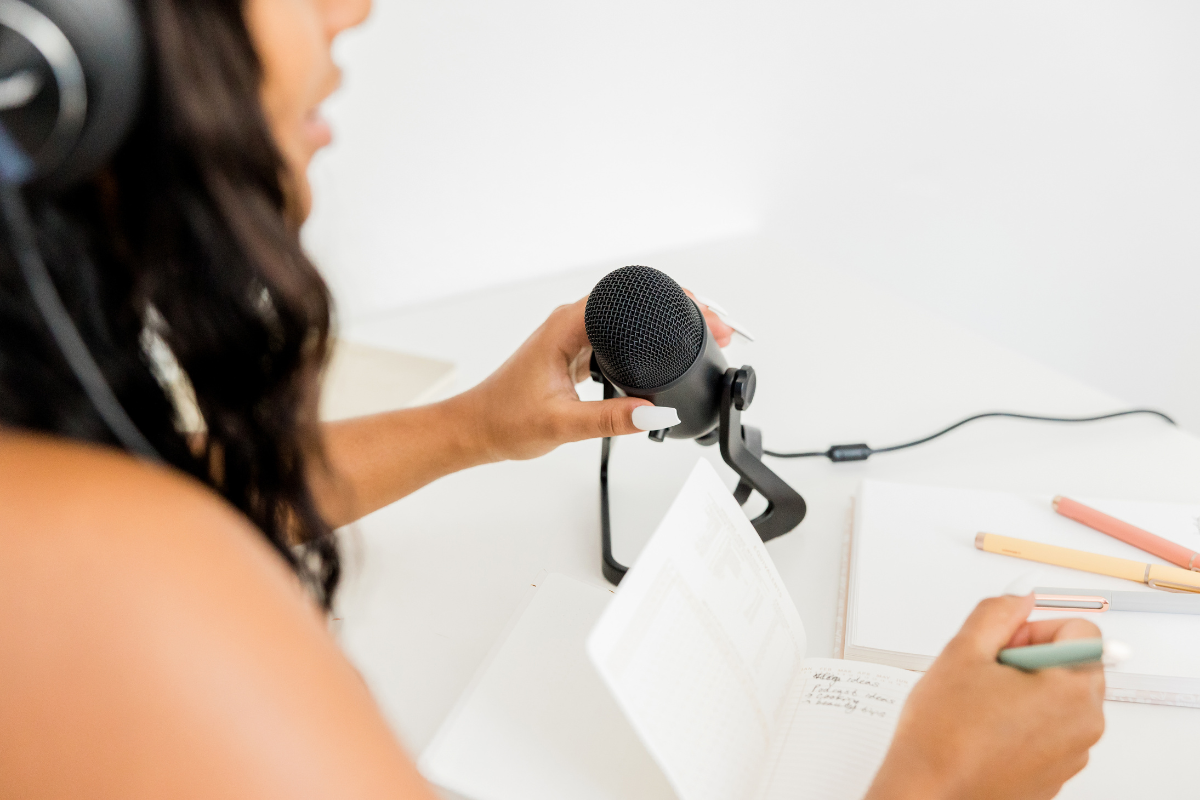For the past 15–20 years, in the world of marketing, ROI has been everything. Teams have been expected to show clear, quantifiable returns for their efforts to justify budgets.
If you’re considering a branded podcast, the stakes are even higher—working with a full-service production company can range from $1,000 to over $15,000 per episode, depending on the podcast type.
Naturally, companies want to know: what will the return on this investment be?
However, while some marketing channels like paid ads offer direct attribution and trackable ROI, podcasts are a different story. Unlike ads with trackable clicks, podcasts are consumed in ways that don’t provide easy data trails or clear-cut results. Attribution isn’t just difficult for podcasting—it’s a growing challenge across the content marketing industry.
Rand Fishkin from SparkToro captures this shift in his article about the challenges of modern attribution. With changes like privacy laws, Apple’s adjustments to cookies, the rise of ad-blockers, multi-device journeys, and zero-click consumption, the digital landscape has evolved. Gone are the days when every click and conversion could be perfectly attributed.
In this article, I’ll explain why direct attribution is so difficult to achieve in podcasting, why a podcast can still provide significant value for companies, and metrics you can use to determine if your podcast is generating results for your brand.

Why direct attribution is so difficult in podcasting.
Podcasts are unique because of how they’re consumed. Unlike a clickable ad or social media post, podcasting is primarily passive. People listen on the go—while commuting, working, or relaxing—often across various platforms. These interactions rarely leave digital breadcrumbs.
Additionally, podcasts are user-centric. While platforms like social media prioritize native content that keeps users within their ecosystem—which is easy to measure—people can listen to the same podcast episode in multiple platforms and ways. This flexibility is a strength for listeners, but a headache for marketers trying to track ROI.
The paths listeners take are also typically non-linear. A listener may discover a podcast, binge several episodes, and make a purchase months (or even years) later, leaving no obvious connection to the podcast.
Here are some examples:
- Scenario 1: A listener hears about your company’s product or service over multiple episodes. Eventually, they visit the company’s website and make a purchase. If they type the URL directly in their browser, this conversion will be attributed to direct traffic. If they search for the company on Google, the conversion will be attributed to the search engine. In both cases, the podcast inspired the purchase, but the conversion was attributed elsewhere because of how tracking works.
- Scenario 2: A prospect follows your company on social media and is intrigued by a program you offer. They notice your company has a podcast with related content, download a few episodes, and gain confidence in your expertise. Later, they purchase the program, but their decision remains untraceable to the podcast.
- Scenario 3: One of my EOA (Entrepreneurs’ Organization Accelerator) coaches learned about EO (Entrepreneurs’ Organization) through an EOS podcast. He eventually decided to join EO, but no one at EO or EOS would have known the podcast inspired him if he hadn’t shared that information with me directly.
These scenarios show that podcasts often influence behavior indirectly and over time, making tracking their impact more complex than channels with direct calls to action. Podcasts build interest and trust gradually, which can lead to conversions that are difficult to trace.
Why podcasts are still worth the investment.
Despite these attribution challenges, podcasts remain a powerful marketing tool. According to Edison Research’s 2023 Podcast Consumer Report, podcasts now have more listeners in the U.S. than ever, with approximately 89 million people tuning in weekly. If your audience is there, your brand should be, too.
From my 10+ years of experience, there are four benefits that are particularly important for companies:
1. Building trust and authority.
Podcasts provide a unique opportunity to establish authority and foster trust. Research by Acast shows that 57% of consumers trust podcast personalities more than other content creators. When we create podcasts for clients, our goal is to consistently deliver valuable content that builds trust with the audience while positioning the company as a thought leader.
2. Enhanced brand loyalty and recognition.
With a podcast, it’s not about telling your audience what your brand stands for—it’s about showing it. When we worked with Leading Voices in Real Estate , the podcast produced bi-monthly episodes with carefully chosen guests, sharing in-depth information and maintaining consistency for years.
The results? Over 1.7 million listens, a 90% engagement rate, and a steady stream of speaking invitations and closed deals for the host.
3. Relationship-building.
Podcasts allow businesses to connect with listeners on a personal level. According to the research paper “Why People Listen: Motivations and Outcomes of Podcast Listening”, many podcast listeners develop parasocial relationships—a one-sided emotional connection—with hosts and guests. In my experience, I’ve seen this happen time and again, where the audience feels like they know the host and are more likely to engage deeply with the brand.
If you’re interested in learning more about how podcasting nurtures parasocial relationships and why these are so beneficial to companies, you can read the article I wrote about it here.
4. A unique voice in the age of AI.
In a world full of AI-generated content, podcasts offer a platform for authentic, unfiltered storytelling. Unlike AI, which can mimic style but not substance, your podcast showcases your brand’s unique voice, personal insights, and expertise. It allows you to dive deeper into topics and connect with your audience in ways other formats simply can’t match.
As I’ve shared in this article about why having a unique voice matters, a podcast is more than just content—it’s a way to build something truly human and original, setting your brand apart in an increasingly automated world.
These four benefits contribute indirectly to sales, customer retention, and long-term brand growth—even if they don’t have a clear dollar value attached.

So, what can you measure?
While podcast ROI may not be directly attributable, several metrics can provide insight into a podcast’s impact. These indicators, while indirect, help you understand the value your podcast brings to your brand and audience.
Here are a 7 metrics I’ve found useful in gauging podcast success:
- Download rates: Downloads reflect how many people have accessed your content, offering a general sense of reach. While we don’t rely on this as the primary metric, it can give you a baseline for tracking growth in listener interest.
- Completion and engagement rates: High completion rates and replays indicate episodes resonate deeply with listeners. For example, when we worked with Scorpion (a marketing agency), The Sharpest Tool was getting over 100% engagement on multiple episodes, meaning listeners were going back and listening to the same episode again.
- Audience demographics and location: This data helps validate alignment with your target audience. Knowing where your listeners are also allows us to tailor strategies for clients based on location-specific opportunities. For example, EOS has leveraged this for its annual conference and another client of ours leveraged it for their in-person training sessions.
- Reviews and ratings: Positive reviews and strong ratings are a form of social proof, indicating that your audience finds value in your content. They can highlight what listeners love most about your show and help attract new audiences. While not a definitive metric, they’re a good signal of audience satisfaction and overall impact. When we worked on the At the Brink podcast, it received over 200 reviews and average rating of 4.8 stars over its two season life span. This social proof was helpful given the need to demonstrate “impact” to some of the show’s funders.
- Direct listener engagement: Podcasts create opportunities for direct interaction with your audience. For example, Matt Slepin, host of Leading Voices in Real Estate and one of our clients, actively encourages listener feedback via email, generating meaningful conversations that validate the podcast’s influence. He literally shares his email in most of the show opening intros, and this leads to many people reaching out with positive feedback and stories. We’ve seen this create surprising opportunities and deeper connections.
- Cross-channel interactions: If you promote podcast episodes through email, social media, or other platforms, track the traffic and engagement they generate. For example, a podcast episode linked in a newsletter might result in higher click-through rates or more website visits. These metrics reveal how your podcast amplifies engagement across channels. A great example is the Coach Factory podcast, their team shared their podcast content across their blog, a members-only area, social media and their newsletter. This way they were able to repurpose their show’s content on multiple channels and amplify their message.
- Partnerships and opportunities: Podcasts can open doors to new collaborations, guest appearances, and business partnerships. Hosting meaningful conversations with guests often leads to long-term professional relationships or even direct business deals. I’ve used this with my own podcasts. In fact, I am currently working on two new partnerships for the Outdoor Sounds podcast. These opportunities highlight a podcast’s value beyond just audience metrics.
While these metrics may not provide a full ROI calculation, they offer meaningful insights into your podcast’s value. Tracking them can help you understand how your podcast contributes to your brand’s goals and overall success.
Reframing podcast ROI: long-term value beyond immediate returns.
Podcasts are best viewed as a long-term investment in brand authority and audience trust. Unlike short-lived ad campaigns, podcast success unfolds gradually, creating a loyal listener base that evolves into brand advocates over time. For companies looking to invest in enduring content, podcasts offer a content asset that builds cumulative brand impact and strengthens the entire marketing mix.
While attribution remains a challenge, the intrinsic value of a podcast can enhance a brand’s effectiveness in today’s complex digital landscape. If you’re ready to see what podcasting can do for your business, you can schedule a free discovery call with me.


